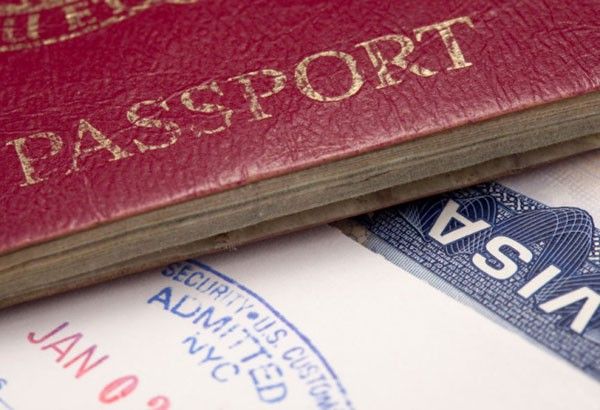IMMIGRATION CORNER – Michael J. Gurfinkel – There could still be hope after a denial

Many people believe that once their case is denied, that is the end of the line. No more hope or chances. There is nothing more they can do, and the case is now dead. However, depending on the reasons for a denial, it could still be possible to salvage the case and get it approved.
The first thing that should be done is a thorough and detailed analysis as to WHY the case was denied. What were the legal and factual bases relied on by the government to support that denial? Were the proper legal standards and burdens of proof utilized by USCIS or the US embassy in supporting the denial? Were there any misunderstandings or miscommunications that created confusion and resulted in a denial? (For example, the person was nervous, didn’t understand a question and gave a wrong answer, etc.). Did the person fail to fill out the forms correctly or include the required documents or information?
The next thing to evaluate is WHAT can be done to overcome the denial. Is a waiver available to overcome the denial? Could additional documents or other evidence prove eligibility and overcome the denial? Is it possible to seek reconsideration or reopening of the case? Can or should the case be refiled? Can the case be appealed, and what would be the grounds for appeal?
There are several reasons a case could be denied, including the following, where it could be possible to get the case approved:
.
ADS by Cloud 9:
.
– SPACE RESERVE FOR YOUR ADVERTISEMENT –
.
Child aged out and therefore not included under a petition. However, it could be possible the child could still be eligible under the Child Status Protection Act (CSPA).
ADS by Cloud 9:
.
– SPACE RESERVE FOR YOUR ADVERTISEMENT –
.
Marital petition denied because USCIS thought the marriage was fixed. If a couple truly married for love, the petition should be approved. However, in some cases the couple does not fully document or prove the bona fides of the marriage (they may not have enough joint documents, they live apart because of work, etc.). If they receive a notice of intent to revoke or the case is already denied, it could be possible to better document the case, refile with a far better packaging of the bona fides of the marriage, etc. The denied family petition could also be appealed to the Board of Immigration Appeals (BIA).
.
ADS by Cloud 9:
.
– SPACE RESERVE FOR YOUR ADVERTISEMENT –
.
Petitioner died. Ordinarily, if the petitioner dies, the petition dies with him. However, in certain circumstances, the beneficiary may be eligible to apply for humanitarian revalidation or reinstatement of his petition. Or if the beneficiary was in the US when the petitioner died and has continued to live here after the death of the petitioner, it could be possible to process the case without even needing to seek humanitarian revalidation.
.
ADS by Cloud 9:
.
– SPACE RESERVE FOR YOUR ADVERTISEMENT –
.
Case is denied because of fraud. If a person commits fraud in connection with seeking or obtaining an immigration benefit (such as assumed name entry, fake or altered documents, etc.) their case could be denied. However, if they have a spouse or parent who is a US citizen or immigrant, and can demonstrate “extreme hardship” on that relative, it could be possible to have a fraud waiver granted and the case approved.
.
ADS by Cloud 9:
.
– SPACE RESERVE FOR YOUR ADVERTISEMENT –
.
Fraud waiver was denied. Sometimes, a person files a fraud waiver, but it is denied because the officer was not satisfied with the documents or evidence submitted and was not convinced the qualifying relative will suffer extreme hardship. Sometimes it’s possible to seek reconsideration and submit new, additional, and stronger evidence. The person could also consider filing a new fraud waiver with a better presentation. Finally, they could appeal the denial to the Administrative Appeals Office (AAO) in Washington DC.
.
ADS by Cloud 9:
.
– SPACE RESERVE FOR YOUR ADVERTISEMENT –
.
Person was ordered deported/removed. Even if a person was ordered deported or removed, there could still be hope. For example, were there any procedural defects or irregularities in connection with their hearing? Are there any forms of relief available that were not asserted or not in existence at the time (such as just married a US citizen for love, US citizen child just turned 21, etc.)? Perhaps the trial attorney will agree to reopen the case to allow the person to apply for relief. The case can also be appealed to the Board of Immigration Appeals (BIA) if meritorious grounds exist and the appeal is timely filed.
These are only a few examples of where there could still be hope after a denial. Although there cannot be any “guarantees” of success, if your case was denied, you should consider consulting with an attorney, who can evaluate your situation, and determine if there is hope in overcoming that denial and assisting in helping you reverse the denial and your case approved.
Website: www.gurfinkel.com
Follow us on Facebook.com/GurfinkelLaw and Twitter @GurfinkelLaw
Four offices to serve you: Philippines: 894-0258 or 894-0239; Los Angeles; San Francisco; New York: Toll Free Number: 1-866-Gurfinkel (1-866-487-3465)
ADS by Cloud 9:
.
– SPACE RESERVE FOR YOUR ADVERTISEMENT –
.
The Philippine Star
 All photographs, news, editorials, opinions, information, data, others have been taken from the Internet ..aseanews.net | [email protected] | For comments, Email to : Icarus d’ Greek | [email protected] | – Contributor
All photographs, news, editorials, opinions, information, data, others have been taken from the Internet ..aseanews.net | [email protected] | For comments, Email to : Icarus d’ Greek | [email protected] | – Contributor








